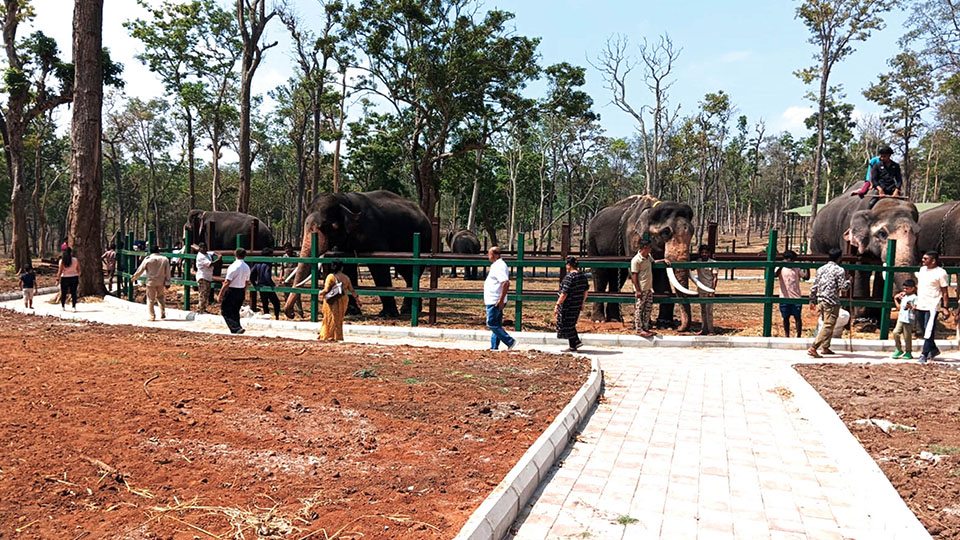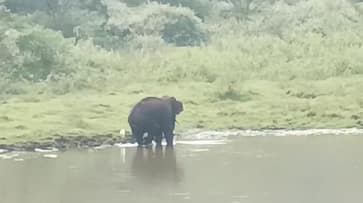
Madikeri:
The longstanding human-elephant conflict in Kodagu has intensified over the decades, with elephant attacks claiming 33 lives in recent years.
Additionally, 53 people are grappling with various issues, including permanent disabilities. Despite continuous efforts by the Forest Department, the menace of wild elephants continues to escalate.
In response, the State Government is gearing up to establish an elephant sanctuary in Kodagu, drawing inspiration from the movie ‘Gandhada Gudi.’ The initiative aims to protect elephants while reducing inconvenience to the local population.
The intention is to strike a balance between wildlife conservation and the safety of local communities for a peaceful coexistence.
To facilitate this, 2,000 hectares of land have been identified in Kodagu, as part of a broader plan covering 12,000 hectares across the State. This land will be used to relocate elephants residing in human settlements back into the forest.
The plan also involves identifying elephants responsible for crop damage and human casualties and relocating them to the sanctuary. The Government intends to provide shelter for around 200 elephants that have settled in rural areas of the district.
During a State Wildlife Board meeting in January, attended by Chief Minister Siddaramaiah, Forest Minister Eshwar Khandre, Forest Department officials and Virajpet MLA A.S. Ponnanna, the relocation of rogue elephants was discussed.
The Government agreed to identify safe areas for this purpose and preparations are now underway. The sanctuary will be equipped with technology to monitor and control the elephants, preventing them from straying back into villages.
Since 2014, the Government has allocated Rs. 21 crore for repairing fences and railway barricades in the Virajpet forest range, covering Ponnampet and Virajpet taluks. This measure is part of a long-term solution to the human-elephant conflict.
Additionally, Rs. 4.72 crore have been swiftly disbursed as compensation to those affected by wild animals and Rs. 22 crore have been allocated for new railway barricades, with installation set to begin soon.
source: http://www.starofmysore.com / Star of Mysore / Home> News / Februaryf 23rd, 2025


